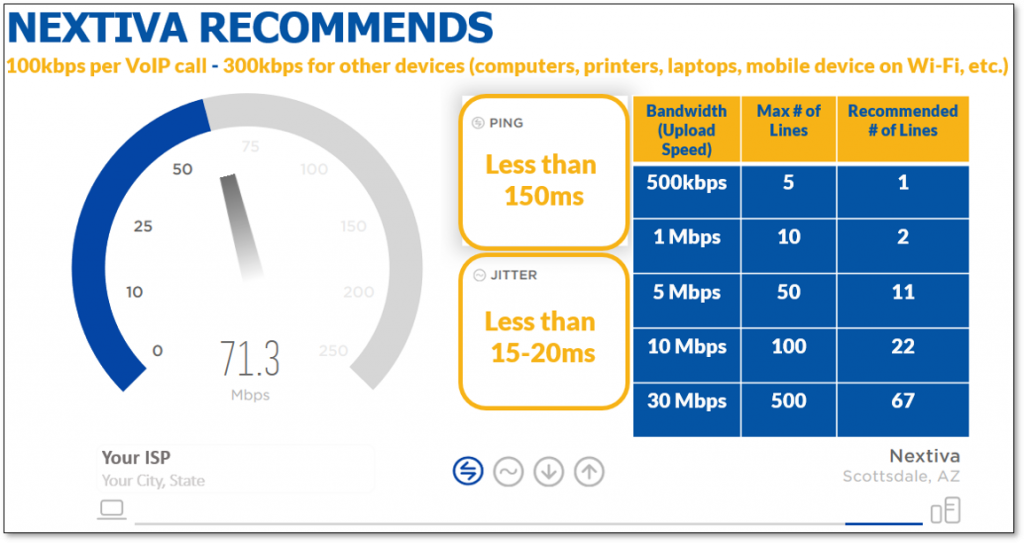One of the more common problems when making and receiving VoIP calls is when a call connects, but one or both parties hear no audio. When determining the cause of one-way audio, it is essential to determine if the issue occurs on one or more phones. If the problem occurs on one phone, the underlying cause can vary from hardware to network configuration. Common symptoms of one-way audio include:
- Inbound audio cuts out
- Outbound audio cuts out
- Inbound and outbound audio cuts out
- Calls drop and reconnect
It is essential to verify the integrity of the local network first when troubleshooting one-way audio. VoIP devices require an upload and download speed of 0.1 Mbps. Computers and connected devices such as wirelessly connected cellular phones, printers, etc. need an upload and download speed of 0.3 Mbps. Verify that Jitter is no higher than 15 – 20 ms, and there is 0% packet loss. To run the Nextiva Network Quality Speed Test, click here. Compare the results with the chart below.
 Recommended Network Quality Speed Test Results
Recommended Network Quality Speed Test Results
Firewall Access Rules control the flow of inbound and outbound Internet traffic from the local network to the public Internet. Both routers and firewalls use access rules to control traffic and verify the source and destination addresses are permitted to send and receive traffic on the local network.
Nextiva recommends that a local Network Administrator whitelist the following rules in the firewall:

Nextiva’s Firewall Access Rules
Ensuring that the setting for SIP ALG is disabled is another frequent troubleshooting step to fix one-way audio issues. SIP ALG (Application Layer Gateway) is a security setting on most commercial routers. While computer traffic will work fine on the network, this setting can affect the data stream for VoIP. SIP ALG causes one-way audio issues and typically affects all phones on the network. For more information on SIP ALG, click here.
Another culprit that can cause one-way audio is Double NAT. Network Address Translation (NAT) provides private IP addresses to all devices on a network. If more than one piece of networking equipment (typically a gateway or router) performs NAT, audio data may be affected. Nextiva does not recommend Double NAT for VoIP. For more information on Double NAT, click here.
Related Articles:
- Nextiva Networking Guidelines
- Why Can’t My Caller Hear Me or Why Can’t I Hear My Caller?
- Why Do I Hear Dead Air When I Answer the Phone?